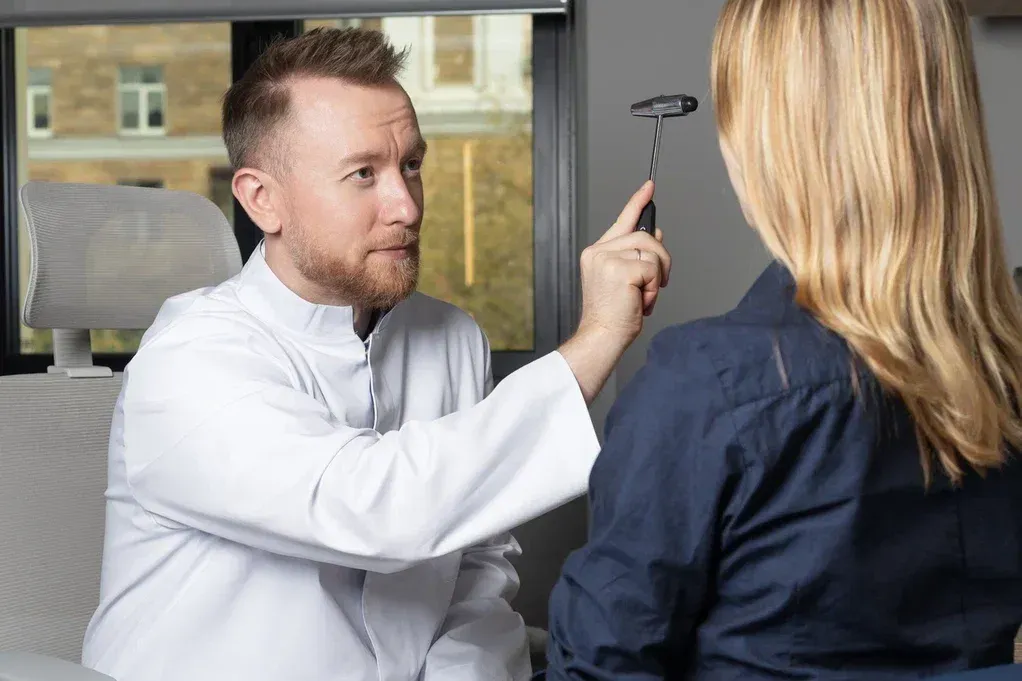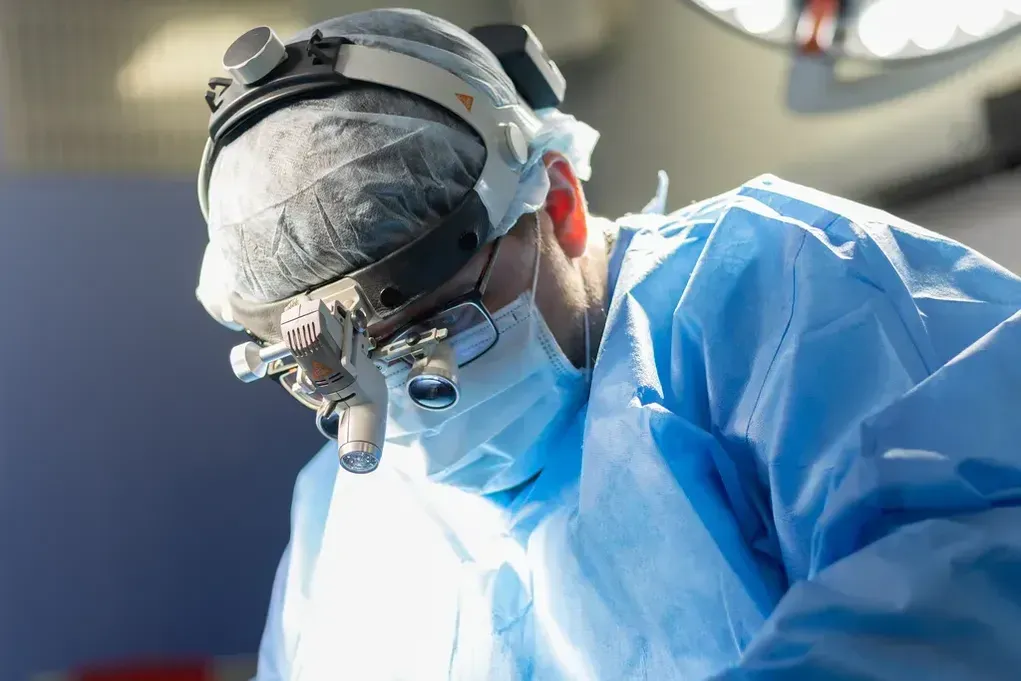Parkinson's disease
A chronic, progressive disease of the nervous system associated with degeneration of neurons in the basal ganglia and a decrease in dopamine levels.

The main mechanism of development of Parkinson's disease is associated with the death of nigrostriatal dopamine-producing neurons. Dopamine plays a key role in the transmission of nerve impulses that regulate movement and coordination. As the disease progresses, its level decreases, which leads to characteristic motor disorders — slowness of movement, muscle rigidity, tremor and balance problems. In addition to movement disorders, Parkinson's disease can be accompanied by autonomic, cognitive, and psychoemotional changes, including depression, anxiety, and late-stage dementia.
Causes
The causes of Parkinson's disease are currently unknown. The influence of genetic factors is assumed.
Symptoms
Slowness of movements, impoverishment of facial expressions, difficulty in performing everyday tasks
Resting tremor is a rhythmic hand tremor that increases at rest.
Muscle rigidity
Imbalance, tendency to fall
Violation of fine motor skills
Handwriting changes — letters become small and illegible
Monotony and silence of voice, speech disorder
Vegetative disorders — constipation, increased sweating, fluctuations in blood pressure
Cognitive impairment, depression, anxiety
Decreased sense of smell is often the only symptom.
After-effects
In the early stages, Parkinson's disease has little effect on daily life, but as it progresses, it becomes more difficult for the patient to perform household tasks. In the later stages, severe motor dysfunction develops. Cognitive impairments, including dementia, impair the ability to plan and make decisions. Depression, anxiety, and insomnia develop.
Лечение

Conservative treatment
The main goal of treatment is to slow the progression of the disease and alleviate its symptoms. Drug therapy is based on the replenishment of dopamine deficiency or stimulation of its receptors. Other drugs used in Parkinson's disease mimic the effects of dopamine and also slow down its destruction. Non-drug therapy plays an important role: regular physical exercises help maintain mobility, and speech therapy classes improve speech and swallowing ability. Physical therapy, massage, and cognitive training also help slow the progression of the disease.

Surgical treatment
When drug therapy does not have the desired effect, deep brain stimulation (DBS) is used. This method involves implanting electrodes into specific brain structures that regulate motor activity. Electrical impulses can reduce the severity of tremor, rigidity and hypokinesia, improving the patient's quality of life. At the moment, our clinic does not provide surgical treatment for Parkinson's disease, but if necessary, we can refer the patient to a doctor in another clinic.
Schedule a visit to the clinic
How to reach
Moscow, 1st Yamskogo Polya Street, 15
Mon–Sun Around the clock
+7 495 255-50-03
How to get
From the Belorusskaya metro station of the Zamoskvoretskaya line - exit 4 After exiting the subway, walk through the pedestrian tunnel and climb the stairs. Move towards the railway tracks, go down the stairs immediately after them and walk along the house, then turn right onto 1st Yamskoye Pole Street. At the turn to 3rd Yamsky Pole Street, cross the road at the pedestrian crossing and continue along 1st Yamsky Field Street, after a few buildings on the left you will see Olympus Clinic MARS.
Travel time
9 minutes
Landmark
Olympus Clinic MARS sign
How to get
From the Belorusskaya metro station of the Ring line - exit 2. After exiting the subway, turn left and walk to the pedestrian crossing. Cross the road through two pedestrian crossings and move along the Tverskoy overpass. Go down the stairs immediately after the railway tracks, walk along the house, then turn right onto 1st Yamskoye Pole Street. At the turn to 3rd Yamsky Pole Street, cross the road at the pedestrian crossing and continue along 1st Yamsky Field Street, after a few buildings on the left you will see Olympus Clinic MARS
Travel time
11 minutes
Landmark
Olympus Clinic MARS sign


